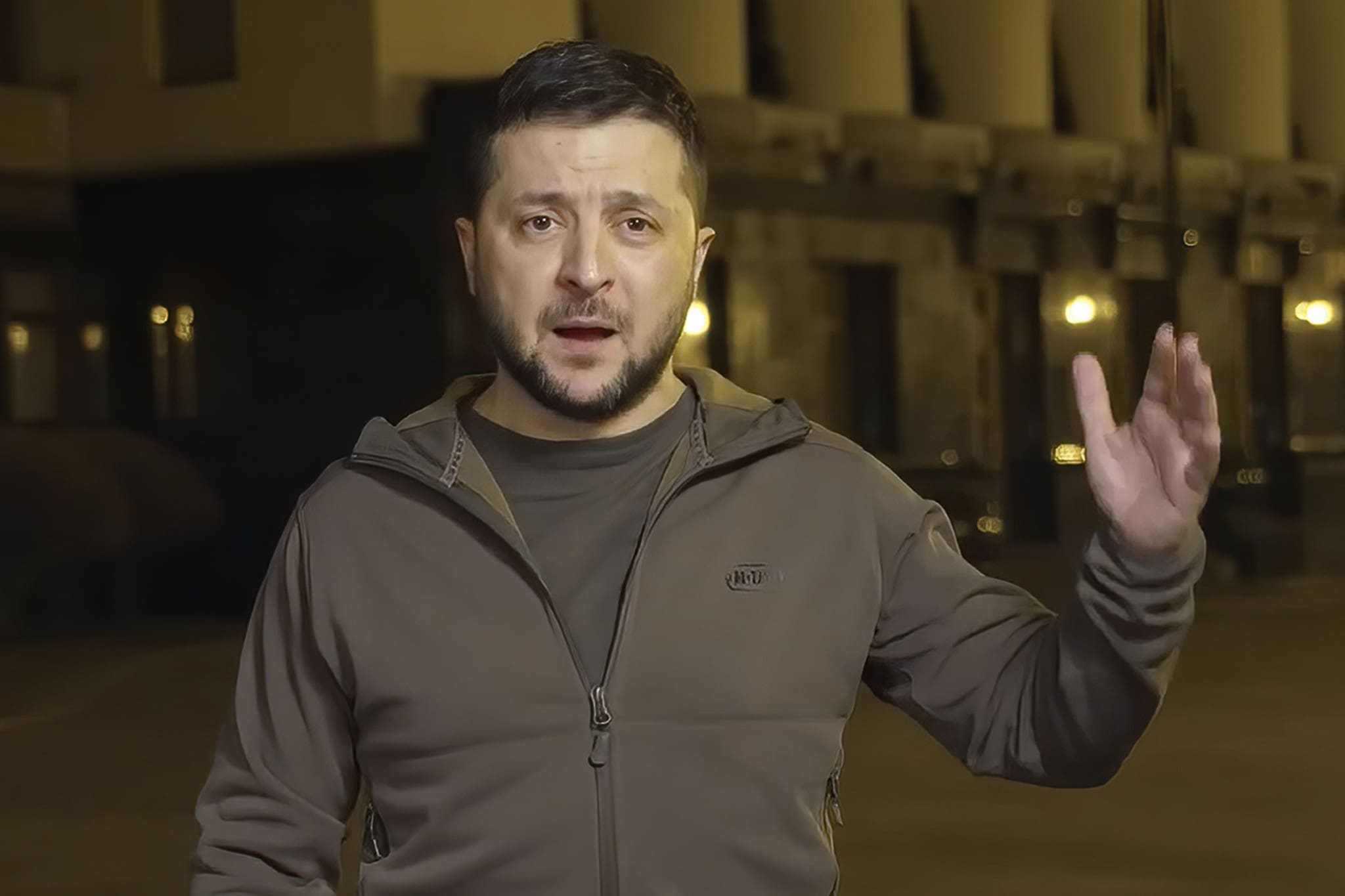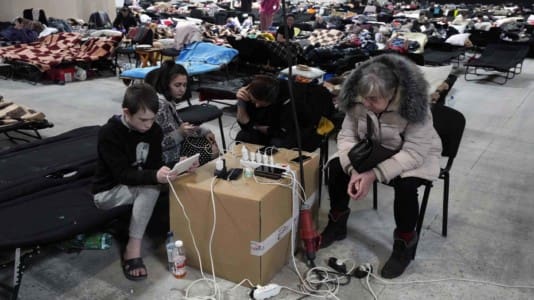Ukraine is banning 11 opposition parties accused of links to Russia while also merging all national television channels into a single platform to create a “unified information policy.” President Volodymyr Zelensky announced in a Sunday video.
“The activities of those politicians aimed at division or collusion will not succeed, but will receive a harsh response,” Zelensky stated in a speech.
Zelensky has been praised as a hero across the Western media, and given his determined stance against Russian aggression in the country, it is little surprise why. Nevertheless, for a country described as “democratic” by President Joe Biden, banning parties that represent a significant percentage of the nation’s voters is now taking on some criticism. Questions are also being raised whether at least some of the parties listed are even truly pro-Russian. According to Germany’s Der Spiegel, all of the parties banned are described as either euroskeptic, anti-liberal, or pro-Russian by Zelenksy’s government.
Writing for Al-Jazeera, Volodymyr Ishchenko, a research associate at the Institute of East European Studies at Freie Universität Berlin, writes:
“[….] The Ukrainian government’s decision to suspend left-wing and opposition parties has little to do with any objective war-time security needs of Ukraine, and much to the with the post-Euromaidan polarisation of Ukrainian politics and redefinition of the Ukrainian identity that pushed a variety of the dissenting positions beyond the borders of tolerable discourse in the country. It also has to do with Zelenskyy’s attempts to consolidate political power that began long before the Russian invasion.”
Ishchenko describes a phenomenon that may sound similar to those familiar with U.S. politics, where the smear of “pro-Russian” is used liberally by anyone seeking to discredit political foes or even an entire political ideology, most liberally used against former President Donald Trump. Outside of the U.S., it has also been deployed against political figures like Hungarian Prime Minister Viktor Orbán.
[pp id=30244]
“After the Euromaidan revolution, and Russia’s hostile actions in Crimea and Donbas, however, the pro-Russian camp was marginalized in Ukrainian politics. And at the same time, the pro-Russian label became very inflated. It started to be used to describe anyone calling for Ukraine’s neutrality. It has also started to be employed to discredit and silence sovereigntist, state-developmentalist, anti-Western, illiberal, populist, left-wing, and many other discourses,” he continued.
He further describes how some of the banned parties were pro-Russian in the sense that they sought closer relations to Russia, but they were most actively seeking out the votes of ethnic Russians with severe grievances against the Ukrainian state. There is also no evidence these parties received funding from Russia, but instead had real grassroots support from a portion of the Ukrainian population. In total, these banned parties represented 2.7 million votes (18.3 percent) in the country’s 2019 parliamentary elections. All of these parties have also denounced the Russian invasion and urged Ukraine to resist.
Most of the banned parties are small parties without representation in the Ukrainian parliament, but they also include the so-called Opposition platform for Life, which has 44 of a total of 450 seats in the Ukrainian parliament.
The party was run by oligarch Viktor Medvedchuk, accused of links to Russian President Vladimir Putin. Last year, he was charged with treason and placed under house arrest, but only after polls began to show him pulling ahead in popularity over Zelensky. Zelensky also put sanctions on Medvedchuk’s party and largely shut down the entire opposition media network associated with his party. Three days after the invasion, Medvedchuk fled. His whereabouts remain unknown.
A number of the parties that were also banned were more left-wing than pro-Russian, with questions whether some of these parties had any pro-Russian sentiments at all, according to Ishchenko and left-wing British media outlet Novara Media. These were mostly marginal left-wing and socialist parties. Ishchenko and a number of Ukrainian leftists argue that their banning may be an attempt to further force the left entirely out of the country’s political sphere.
Before the war, plenty of Western media outlets were open that Zelensky ran Ukraine with a mix of democracy and authoritarianism, both through his actions against the largest opposition party and the shutting down of rival press outlets. He has also led a crackdown on minority speech and cultural rights, which not only affected Russian speakers, which represent nearly half of all speakers in the country, but also minority populations such as the Hungarians in the west of the country.
[pp id=31236]
In addition, the Kyiv Independent news outlet states that Zelensky has signed an ordinance that merges all national television channels into a single platform. The country must have a uniform information policy, says the presidential office in a statement, adding that no channel will be shut down.
Russia, which has also led its own crackdown on political opposition, took the opportunity to jump at Zelensky’s anti-democratic measures. Russian ex-president Dmitry Medvedev mocked the move on his Telegram channel, writing, “The most democratic president of modern Ukraine has taken another step towards the western ideals of democracy. By decision of the Council for National Defence and Security, he completely banned any activity of opposition parties in Ukraine. They are not needed! Well done! Keep it up.”
Russia has implemented arguably an even harsher crackdown against the opposition, threatening its citizens with harsh prison sentences for protesting or spreading “misinformation” about Russia’s invasion of Ukraine. While the West has moved to suspend Russian-backed media like RT and Sptunik, Russia has also banned Facebook, Google News, and a range of publications, claiming they are “extremist” organizations.
Nevertheless, while Russia’s draconian moves have been received ample criticism across the West, very little criticism has been directed at Zelensky’s crackdowns in the country.





